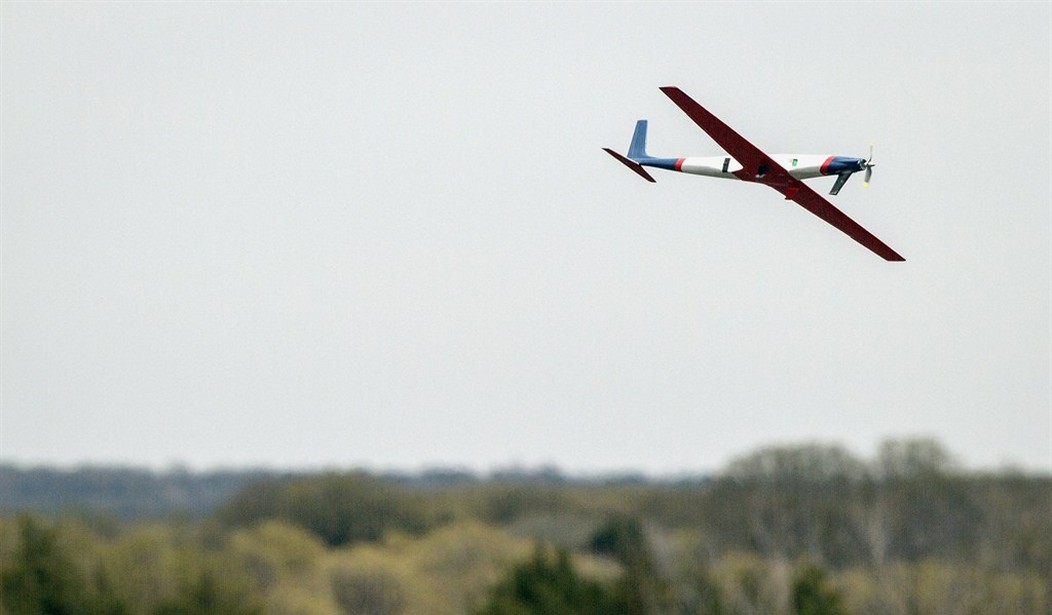Editor's Note: This column was coauthored by Bill Roggio.
In 1996, al-Qaeda founder Osama bin Laden issued a formal declaration of war against the United States. No serious strategy was developed for defeating what most government officials dismissed as a bunch of fanatics living in mud-brick villages in Afghanistan, shaking their fists at the greatest power on Earth.
Almost two decades later — following attacks from New York to Nairobi to Dar es Salaam to Bali to Riyadh to London to Sana’a to Timbuktu to Benghazi — the U.S. still lacks a coherent plan for neutralizing al-Qaeda and its now-multiplying affiliates. The U.S. does, however, have one weapon that it has been deploying to keep al-Qaeda off balance — and to thin the organization’s top ranks.
Unmanned aerial vehicles (UAVs), more popularly known as drones, were originally used for surveillance, in particular by the CIA following 9/11. Before long, however, they were adapted to fire computer-guided missiles. Armed UAVs quickly became President Obama’s weapon of choice in Afghanistan and Yemen.
Last week, both London-based Amnesty International (AI) and New York–based Human Rights Watch (HRW) issued reports charging that America’s use of drones has violated international law, killing scores of innocent civilians and targeting suspected terrorists in ways that, AI asserts, “may constitute extrajudicial executions or war crimes.”
AI and HRW are non-governmental organizations with no legal authority. Nevertheless, White House spokesman Jay Carney responded to their charges, saying the president “would strongly disagree” with the allegations. “U.S. counterterrorism operations,” he said, “are precise, they are lawful, and they are effective.”
The concern of AI and HRW for al-Qaeda commanders is misplaced. It is neither moral nor helpful to award unlawful combatants, a.k.a. terrorists, more rights than are due honorable soldiers who abide by the laws of war. And make no mistake, AI and HRW are proposing exactly that: They want al-Qaeda commanders to be treated as innocent-until-proven-guilty suspects, entitled to all the constitutional rights due an American citizen in a domestic judicial proceeding.
Recommended
More pertinent is the groups’ distress over civilian casualties — the most tragic component of any war. Intentionally targeting civilians is among the practices that distinguish terrorists from law-abiding soldiers — at least for those not so befuddled as to insist that “one man’s terrorist is another man’s freedom fighter.” But AI and HRW present no evidence that American drone operators are doing that — though, indisputably, mistakes can and do happen.
How many civilians have been killed by American UAVs remains a matter of debate — and definition: Should an al-Qaeda commander’s driver be considered a civilian? How about his doctor or his cook? His wife or son? The use of non-combatants as human shields is a clear violation of the laws of war — a fact that does not appear to raise the blood pressure of AI and HRW activists.
Since 2004, the use of drones has succeeded in eliminating at least 94 top leaders and operatives of al-Qaeda and affiliated groups in Pakistan, according to research by The Long War Journal. Those killed have been replaced by other operatives from al-Qaeda’s deep bench. Those operatives have continued to plot attacks against the U.S. and its allies, and they have expanded into new theaters.
Kenneth Roth, executive director of HRW, argues that al-Qaeda is currently capable of mounting only “sporadic, isolated attacks, carried out by autonomous or loosely affiliated cells. Some attacks may cause considerable loss of life, but they are nothing like the military operations that define an armed conflict under international law.”
Roth further asserts that “the war against al-Qaeda is over” and that the U.S. should therefore stop using drones and revert to a strict “law enforcement” paradigm. The paradox he fails to recognize: Doing so would allow al-Qaeda to reconstitute its ability to wage the war that Roth claims the U.S. has won thanks in large measure to the use of drones.
And since Roth believes that al-Qaeda should be fought only with “law enforcement” methods, he ought to explain how that would work in the garden spots where al-Qaeda operatives live and conspire. Would he propose that police forces enter Pakistan’s tribal areas — much of which are now under al-Qaeda and Taliban control — and attempt to handcuff suspects? Whose police will be assigned that mission? What happens when governments refuse to enforce the laws (Pakistani authorities don’t want the job, which is why they have secretly consented to American drone strikes) or are incapable of enforcing the law (as is the case in Yemen)?
Another example of fallacious reasoning: Amnesty International asserts that U.S. drone policy sets a dangerous precedent “that other states may seek to exploit to avoid responsibility for their own unlawful killings.” Do AI executives really believe that the rulers of Sudan, Syria, Iran, and similar states are taking into account American precedent before deciding on the most effective means to slaughter those they regard as enemies?
Its pushback against the charges leveled by AI and HRW notwithstanding, the Obama administration does seem conflicted over its drone policy. After 9/11, Congress passed an Authorization to Use Military Force (AUMF) — a sort of Declaration of War Lite — affirming the president’s power to fight al-Qaeda not with warrants and subpoenas but with drones and other lethal weapons. But four months ago, Obama called for the repeal of the AUMF, explaining: “Our systematic effort to dismantle terrorist organizations must continue. But this war, like all wars, must end.”
If there’s no war and no AUMF, he would have diminished legal authority to use drones to “dismantle terrorist organizations.” And those implying that President Obama and other Americans are war criminals would have a much more persuasive case. Why the White House would favor such an outcome is a puzzle.

























Join the conversation as a VIP Member